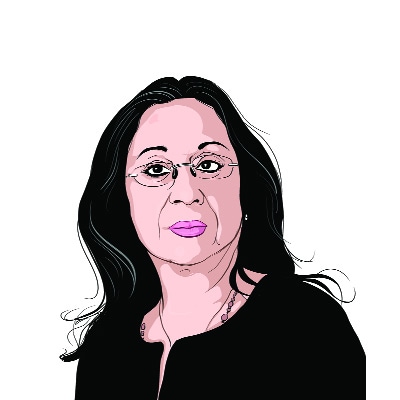Opinion Anna Hazare,politician
Among the things that put me off Anna,and his movement,from the start was its totalitarian nature.
Now that Anna Hazare has decided to become a real politician,it is my fervent hope that he and his fellow travellers discover that the fundamental principle of democracy is debate. Among the things that put me off Anna,and his movement,from the start was its totalitarian nature. Its apparent inability to accept that neither Anna nor his team have all the answers. I have had the uncertain honour of many close encounters with Annaites and have been astounded every time by their inability to comprehend the power of debate and the meaning of dissent.
On one occasion,Headlines Today filled the Kamani Auditorium in Delhi with Anna supporters for a panel discussion in which I was a participant and there was mob fury and violent abuse every time I opened my mouth. Why? I dared to point out that China had been unable to end corruption despite a law that allows corrupt officials to be shot.
What mystifies me about Annas followers,considering that they are mostly urban,educated and middle-class,is their political illiteracy. In a television debate last week,I heard a famous author,and dedicated Annaite,recommend political correctness as something India should learn to practice. He had no idea that political correctness was not some new fangled modern ideology. No idea at all that what it means is that you pull your punches when discussing certain ethnic,gender and religious issues because it is not politically correct to offend the underprivileged.
This is only one example of political illiteracy that I have detected in Annas flock. The list is a long one. But,the most important is their seeming inability to understand that the strength of democracy lies in its institutions and in the rule of law. You cannot fast unto death to demand a special investigation into fifteen corrupt ministers but you can certainly go to court and file a PIL.
When Prashant Bhushan was asked about this on Nidhi Razdans show last week,he said the legal process took too long. This from a supposedly eminent lawyer! Then he put forward the bizarre proposition that when democracy deepens (whatever that means),laws will be made by ordinary people,in village councils and town halls,making Parliament extraneous. Which world do these people live in? Which schools did they go to? And,when he was in law school did nobody
tell Mr Bhushan about the rule of law?
Having said this,I believe it is important to add that I can think of no government,other than Mrs Gandhis Emergency one,that has denigrated the institutions of democracy more than the present one. When Sonia Gandhi listened to her politically astute inner voice and chose not to become prime minister,she immediately began the process of diminishing the most important executive office in a parliamentary democracy. This process became more dangerous after the Sonia-Manmohan government won re-election because it was clear to anyone covering politics in Delhi that in his second term in office the good doctor was only a regent. Unfortunately,by the time the Heir Apparent was defeated in the brutal battlefields of Bihar and Uttar Pradesh,it was too late for the regent to become a real prime minister again.
When it comes to the diminishment of Parliament,all our political parties have played a role by espousing hereditary democracy. The Lok Sabha is so much a private club today that the manner in which the new Chief Minister of Uttar Pradesh handed his parliamentary constituency to his wife barely attracted comment. It is an accepted fact that if you want a political career in India,you must make sure that you are born in the right family or have shown sufficient servility and sycophancy in the court of some political leader. The rage so evident in Annas followers is because they feel excluded from political forums that now have No Entry signs outside all their entrances.
So even as someone who has no respect for Anna Hazare and his very unsavory team mates,I welcome their entry into electoral politics. If they can find a new way,tread a new path and bring people into the Lok Sabha who have a genuine interest in public service,then they would have done this country a real service. But,before all this happens they need to spend the two years left before the next general election imbibing real political ideas and real respect for democratic processes. Perhaps then Anna can give us a vision of the future that is not confined to building hundreds of model villages. Having spent most of his life in Ralegan Siddhi,he appears not to have noticed that what India needs today are more than 500 new cities to accommodate the vast multitude of Indians who are moving out of the villages at an almost
alarming speed.
Follow Tavleen on Twitter @Tavleen_Singh





